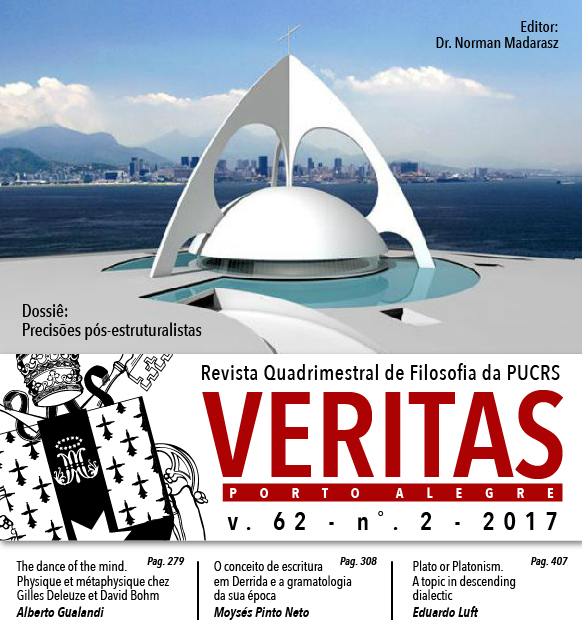Error Theory: a critical evaluation
DOI:
https://doi.org/10.15448/1984-6746.2017.2.26582Keywords:
metaethics, Error Theory, queerness argument.Abstract
Among modern metaethical theories John Mackie’s Error Theory is one of the most influential. This is not accidental. Mackie’s theory is new, is interesting and is supported by clear and challenging arguments. In spite of all this, a case will be mounted here against Mackie’s main theses. Firstly, it will be claimed that, if his main argument, the argument from queerness, is taken as sound, what follows from it is not the systematic falsity of moral statements, as Mackie claims, but something else. Secondly it will be argued that the queerness argument itself is not sound. The result is a rejection of the main points of Mackie’s theory.
Downloads
References
BLOOMFIELD, P. “Error Theory and the Concept of Morality”. Metaphilosophy, 44, 4 (2013), p. 451-469. DOI: https://doi.org/10.1111/meta.12041
JOYCE, Q.; KIRCHIN, S. “Introduction”. In: Joyce, Richard; Kirchin, Simon (Ed.). A World Without Values. Heidelberg: Springer, 2010. p. ix-xxiv. DOI: https://doi.org/10.1007/978-90-481-3339-0
MACKIE, J. Ethics: Inventing Right and Wrong. London: Penguin Books, 1977.
OLSON, J. Moral Error Theory. Oxford: Oxford University Press, 2014. DOI: https://doi.org/10.1093/acprof:oso/9780198701934.001.0001
PIGDEN, C. “Nihilism, Nietsche, and the Doppleganger Problem”. In: Joyce, Richard; Kirchin, Simon (Ed.). A World Without Values. Heidelberg: Springer, 2010. p. 17-34. DOI: https://doi.org/10.1007/978-90-481-3339-0_2
Downloads
Published
How to Cite
Issue
Section
License
Copyright
The submission of originals to Revista Veritas implies the transfer by the authors of the right for publication. Authors retain copyright and grant the journal right of first publication. If the authors wish to include the same data into another publication, they must cite Revista Veritas as the site of original publication.
Creative Commons License
Except where otherwise specified, material published in this journal is licensed under a Creative Commons Attribution 4.0 International license, which allows unrestricted use, distribution and reproduction in any medium, provided the original publication is correctly cited. Copyright: © 2006-2020 EDIPUCRS</p






